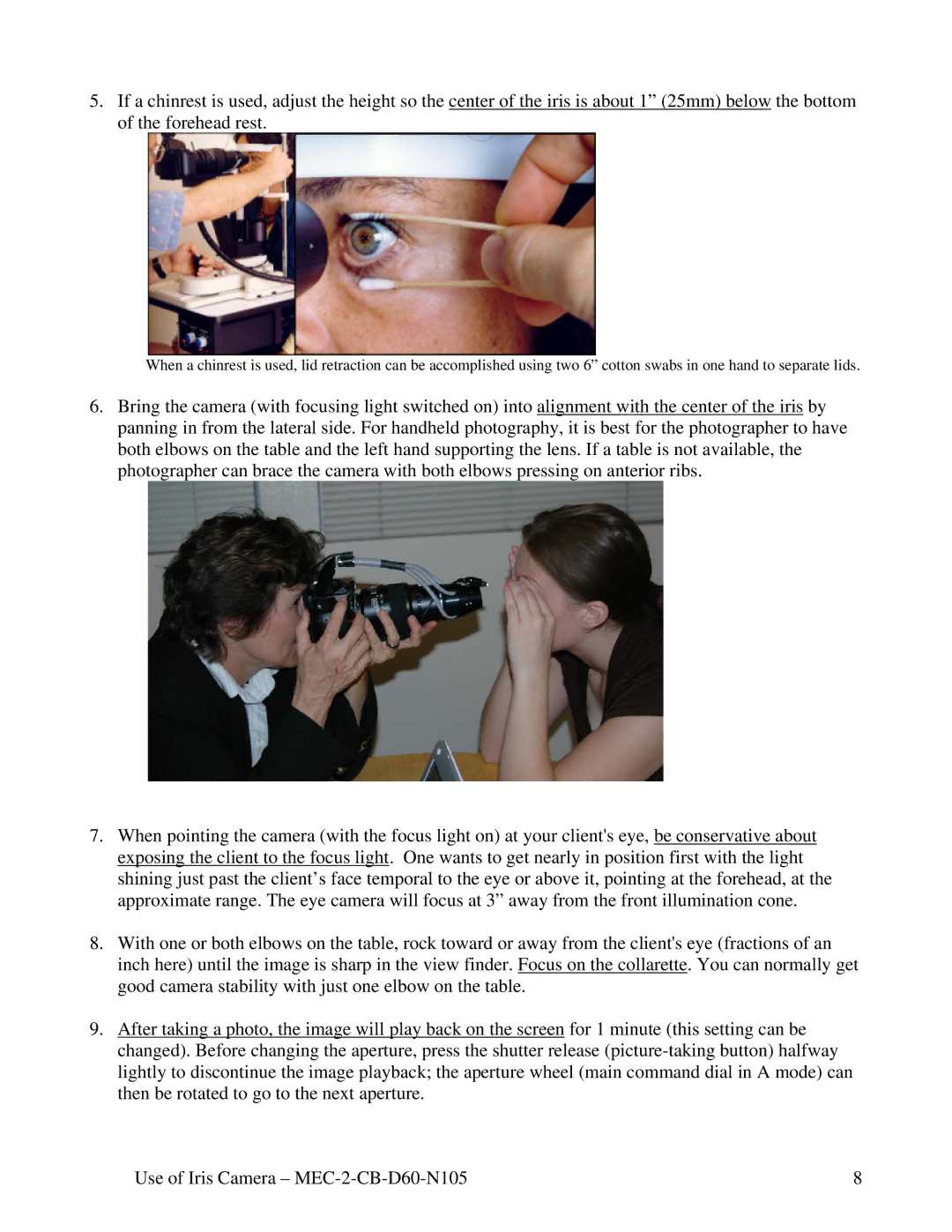
5.If a chinrest is used, adjust the height so the center of the iris is about 1” (25mm) below the bottom of the forehead rest.
When a chinrest is used, lid retraction can be accomplished using two 6” cotton swabs in one hand to separate lids.
6.Bring the camera (with focusing light switched on) into alignment with the center of the iris by panning in from the lateral side. For handheld photography, it is best for the photographer to have both elbows on the table and the left hand supporting the lens. If a table is not available, the photographer can brace the camera with both elbows pressing on anterior ribs.
7.When pointing the camera (with the focus light on) at your client's eye, be conservative about exposing the client to the focus light. One wants to get nearly in position first with the light shining just past the client’s face temporal to the eye or above it, pointing at the forehead, at the approximate range. The eye camera will focus at 3” away from the front illumination cone.
8.With one or both elbows on the table, rock toward or away from the client's eye (fractions of an inch here) until the image is sharp in the view finder. Focus on the collarette. You can normally get good camera stability with just one elbow on the table.
9.After taking a photo, the image will play back on the screen for 1 minute (this setting can be changed). Before changing the aperture, press the shutter release
Use of Iris Camera – | 8 |
